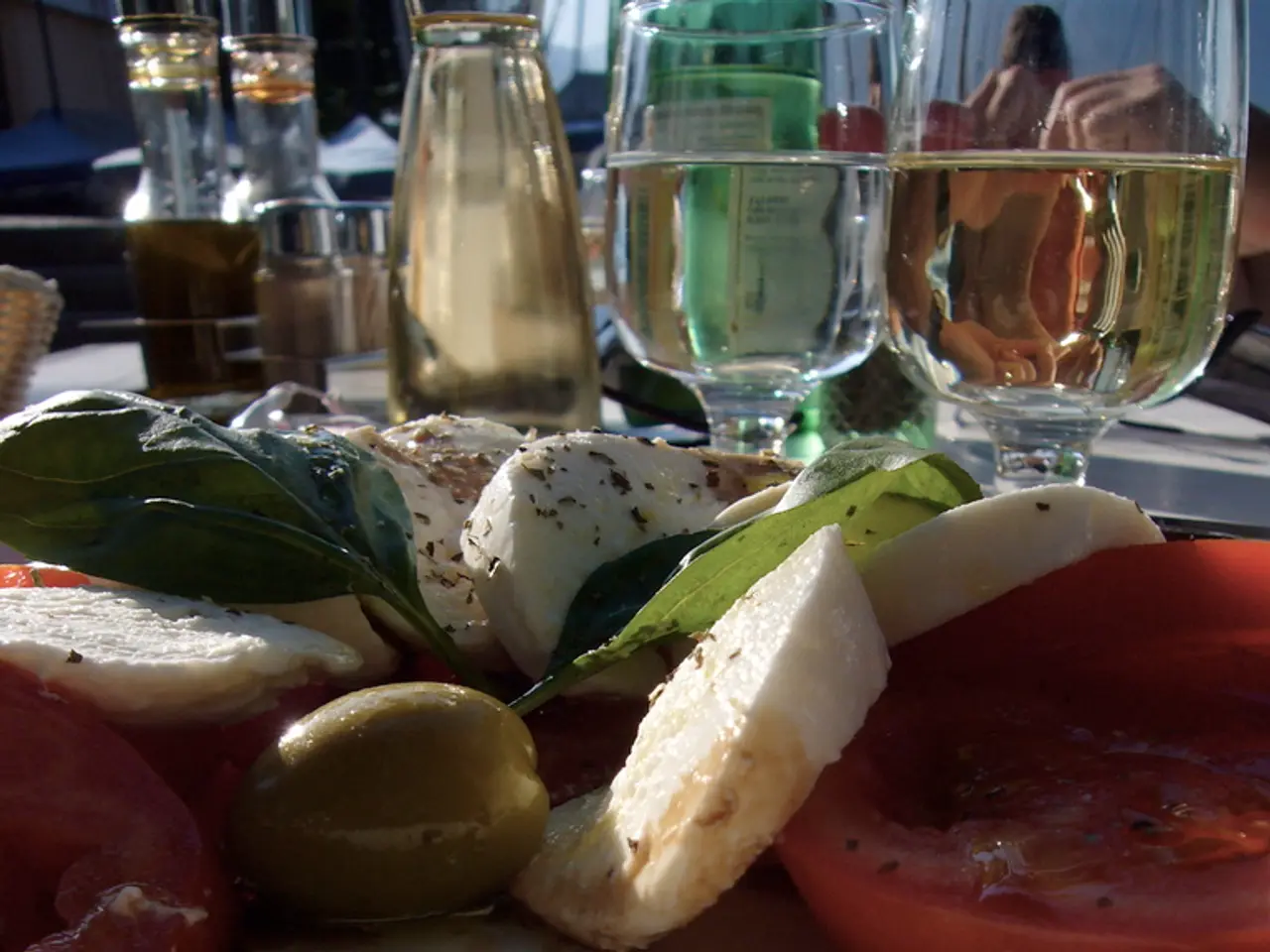Exploring the Vineyards of Croatia for Enthusiasts of Fine Wines
Discovering Croatia's Wine Regions: A Taste of Mediterranean and Continental Influences
Croatia, a country rich in history and natural beauty, has a wine culture that is as diverse and captivating as its landscapes. With a winemaking tradition dating back to around 2200 B.C., Croatia's wine industry has weathered numerous challenges, including invasions, wars, and political conflicts, to emerge as a vibrant and celebrated part of the country's identity.
The wine regions in Croatia can be broadly categorised into coastal and continental designations. White wines are typically found inland, while red wines dominate along the coast. Croatia boasts 64 indigenous grape varietals, with white wine accounting for approximately 60% of total production.
Istria, the northwest peninsula, is often referred to as "The Other Tuscany" due to its rolling hills and Mediterranean climate near the Adriatic Sea. The region is famous for the white grape Malvasia (Malvazija), producing dry, full-bodied, aromatic wines often smelling of acacia flowers. Key towns such as Savudrija (DeGrassi winery) and Momjan (Kozlović winery) are renowned for their winemaking prowess. Istrian Malvasia pairs well with fish and local prosciutto.
The Pelješac Peninsula in Dalmatia is famous for robust red wines made from Plavac Mali, an indigenous grape. The Dingač area produces a highly regarded dry red wine, known for its dense fruit flavors and ruby red color. The steep, rocky slopes and local microclimate enhance grape quality, making Dingač wines a sought-after treat.
Korčula Island is known for the white grape Pošip, an autochthonous variety. Harsh terrain and traditional hand-harvesting techniques define winemaking here. Pošip is protected for its geographic origin and is well paired with seafood and local cheeses like Paški sir.
Slavonia, located in eastern Croatia, is known for continental climate wines, often white varieties. The Slavonian oak forest in Croatia produces oak used for casks that age some of Europe's finest wines. The Graševina grape, widely planted in Slavonia & Danube, produces light, aromatic, and refreshing white wines.
In recent years, the Croatian wine industry has been making strides in the world stage with a focus on small, family-owned production. Notable winemakers like Krauthaker and Enjingi, based in Kutjevo, a significant wine-growing district in Slavonia & Danube, are leading this revival.
For those seeking a taste of Croatia's wine culture, a sailing excursion along the Dalmatian Coast offers a chance to taste the wines of Croatia firsthand. The Bibich winery near Skradin is recognized for premium wines like Bas de bas and Babić Bibich, highlighting quality Dalmatian reds paired with local specialties.
Wine tourism diversifies across Croatia, with many small wineries welcoming visitors for tastings, often set in historic or scenic locations. Many towns have adopted rules and standards for winemaking, with Korčula having a 1214 statute containing strict rules that protect the vineyards.
Overall, Croatia’s wine regions reflect a blend of Mediterranean and continental influences with indigenous grape varieties, making its wine culture unique and increasingly celebrated internationally.
- The wine regions in Croatia, category as coastal and continental, offer a diverse and captivating wine culture that mirrors the country's rich history and landscapes.
- Istria, known as "The Other Tuscany," is a peninsula that produces dry, full-bodied Malvasia wines, pairing well with fish and local prosciutto.
- The Pelješac Peninsula is famous for robust red wines made from Plavac Mali, with Dingač area wines being particularly sought after for their dense fruit flavors.
- Korčula Island is known for Pošip, an autochthonous white grape, producing light, refreshing wines paired well with seafood and local cheeses.
- In eastern Croatia, Slavonia, with its continental climate, contributes to the production of Graševina, an aromatic white wine.
- A sailing excursion along the Dalmatian Coast allows wine enthusiasts to taste Croatia's premium wines firsthand, such as those produced by the Bibich winery near Skradin.




